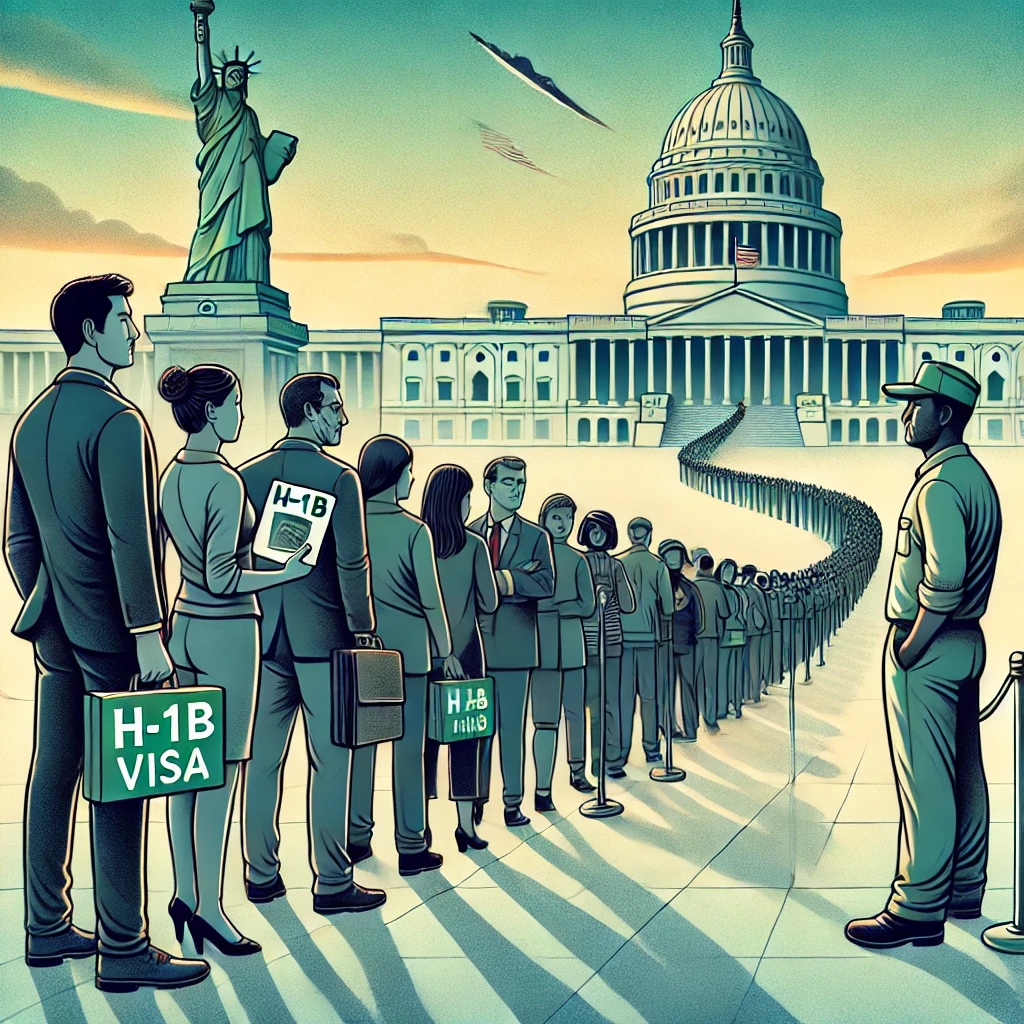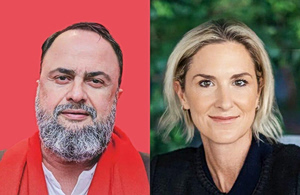In an interview with To Vima, former Congressman Bruce Morrison, architect of the Immigration Act of 1990 that created the H-1B visa, offers a critical perspective on how the program has evolved—and, in his view, gone astray.
With over a million skilled workers and their families stuck in bureaucratic limbo, Morrison argues for a fundamental realignment: prioritizing green cards over temporary visas to attract and retain global talent while ensuring fairness for American workers.
The rift signals deeper ideological fractures within the Republican party, making the future of the H-1B program—and broader immigration reform—more uncertain.
Let’s start with some context: What was the original intent behind the H-1B visa program, and how has it evolved since its inception?
H-1B is a particular program. It has its reasons for being and it has its pluses and minuses. But the real issue is the immigration of skilled individuals to the United States. And H-1B was never intended to be the main vehicle for people to come to the United States as skilled employees. That role is intended to be filled by green cards. And the fact that every time somebody talks about skilled immigration, they talk about H-1B is really an indication of a total failure of the policy process to focus on what the need is and how it might best be met.
Populist right figures argue the H-1B program has drifted from its original purpose, favoring corporate cost-cutting over fostering innovation. Do you agree with that assessment?
Well, I think that the exploitation claim is correct but the people who are saying that would say it about any immigrant program because they are opposed to immigration generally. I think the problem with H-1B is that it is the wrong tool for the job that is needed. What is needed is people to be able to come and work here and become permanent residents and then citizens based on their skills. Currently there are a million people already waiting in line, and every year we add 150,000 people to that line because of the lack of numbers of green cards available for people to come here and stay based on their skills.
Critics, however, say the H-1B visa is being exploited to displace American workers, particularly in the tech sector. How do you interpret the recent surge in political and public criticism of the H-1B program?
The H-1B program has been abused in a variety of different ways. The most important evidence of that abuse is that there are over a million people waiting for permanent residents based on their employment who came here originally under the H-1B program but are in this endless queue to get what they really want, which is to live and work in the United States in their specialties. And the reason that it looks like that is because for the last 30 years, those who tout the H-1B program, largely the high-tech industry, have not talked about permanent additions to our workforce who would bring skills that we otherwise don’t have or need supplemented, but rather a particular visa program, which is not an immigrant program. It is intended to be temporary, and it has been turned into an indenturing machine. That is one that keeps a large number, we are talking about a million people of which half are workers and half are dependents, who stay tied to their employer, hoping someday, maybe decades from now, that they will be able to get permanent status in the United States.
Donald Trump has campaigned on an “America First” platform. Based on what we know, how do you anticipate his administration will handle the H-1B visa program?
Well, I anticipate that he will probably try to please his number one, whatever the right word for this person is, for Elon Musk, who has been calling the tune on a number of things for the past several months. And Donald Trump has mostly been critical of H-1B in the past. But Elon Musk, you know, said H-1B was something we had to have. So, Donald Trump all of a sudden said he loved the program, and he had all his experience with it. Although most reporting suggests he has no experience with H-1B, and he has experience with a different program, which is called H-2B. I think that he is going to do a lot of things in the immigration area that are inconsistent with what he said during the campaign, and touting the H-1B is inconsistent with what he had to say during the campaign. And I won’t be surprised if he supports it, because I think he said a lot of things during the campaign for the purpose of getting votes, not because he was committed to them.
What changes, if any, would you advocate for to make the H-1B program more equitable for both American workers and foreign talent?
Well, the foreign talent wants green cards, and we can’t fix the problem just looking at H-1B. You can only fix the problem if you see the goal as getting people green cards, so that they can stay in the United States as they choose and become citizens. The H-1B will never do that. It doesn’t do that. Therefore, it will be exploited in a variety of ways because the people who are being brought in have the hope and expectation of permanence, and they are being put on an endlessly temporary visa.



